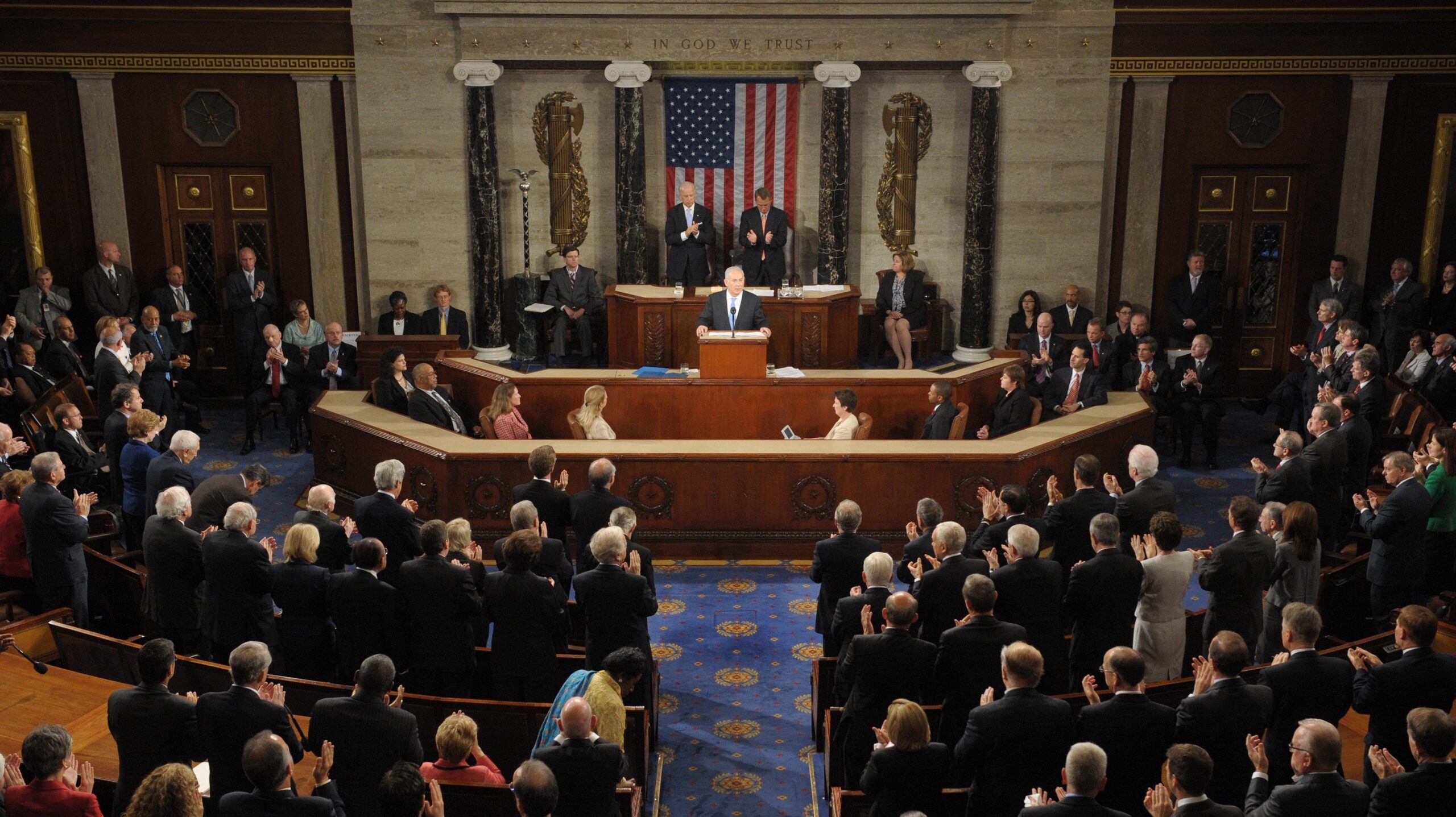Biden Had No Choice but To Accept Netanyahu’s Speech in Congress
Maariv, Israel, June 2
The Biden Administration has concluded that Israel has exhausted all of its military options and that its standing has deteriorated across political, informational, and legal fronts. Therefore, the White House’s policies are aimed at halting this collapse and neutralizing internal pressures tied to Bidens’ presidential campaign against Trump. Experience from 21st-century conflicts indicates that achieving military objectives requires strategizing for campaign exit or conclusion from day one. The Netanyahu government did set objectives against Hamas in Gaza, but politically motivated efforts to preserve the coalition hindered discussions of an exit strategy. President Biden has now presented a strategy aligned with the war goals agreed upon by both nations. Biden unveiled Netanyahu’s plan for the gradual release of hostages, effectively entangling Netanyahu with his own proposals. This revelation caught Netanyahu off guard, as he relied on Hamas’ assertion that negotiations would be off the table as long as fighting in Rafah persisted. Netanyahu certainly did not foresee the timely disclosure of this document by the US president. Addressing the Israeli public over Netanyahu’s head, Biden urged support for the revealed outline. This move raises questions: why seek the Israeli public’s approval for a plan proposed by their own prime minister? The answer lies in the historical dynamics between American administrations and Netanyahu, who has a reputation for reneging on commitments made behind closed doors. Netanyahu has often claimed a four-decade friendship with Biden, but the relationship has had its strains. Familiar with Netanyahu’s evasive tactics, Biden suspected that Netanyahu might backtrack on his commitments, prompting him to fully disclose the plan. The timing is strategic. Biden perceives Ben Gvir and Smotrich as holding sway over Netanyahu, influencing decisions through political and personal considerations. Biden also noted Gantz and Eisenkot threatening to exit the coalition, citing diminished influence within the war cabinet. Biden’s statement aimed to persuade Gantz and Eisenkot to reconsider their ultimatum, stay in the coalition and fight for the plan’s implementation. An extremist government dominated by Ben Gvir and Smotrich, without Gantz and Eisenkot, portends a potentially severe crisis with Washington. Biden believes the outline he presented could neutralize threats to Israel, stabilize the region, and help safeguard his own reelection prospects. Ceasing the Gaza conflict could end Hezbollah’s attacks on Israel’s northern border, potentially paving the way for diplomatic efforts to withdraw Hezbollah forces and facilitate displaced Israelis’ return. Additionally, Houthis might halt Red Sea ship attacks, restoring Suez Canal navigation; ICC legal action against Netanyahu and Israel could cease; and domestic opposition within Biden’s party over his support for Israel might diminish. However, the plan includes stages and principles, essentially a roadmap requiring tough negotiations on other issues. The outline represents the maximum Israel can concede, which Ben-Gvir and Smotrich already contest. For Hamas, this only serves as a baseline for further negotiations, aiming for additional Israeli concessions. There are significant gaps in the plan. For example, Biden mentioned the replacement of the Hamas regime but did not elucidate why Hamas would agree to a process leading to its downfall. American guarantees to Hamas versus Qatari guarantees to Israel depict an unrealistic symmetry. The US has leverage over Israel, whereas Qatar has shown little willingness or capacity to exert pressure on Hamas. Concurrently, Netanyahu received an official invitation to address both houses of Congress. Remembering the fallout from Netanyahu’s 2015 speech criticizing Obama’s impending Iran nuclear deal, Democrats are wary of a repeat rift within their party and with American Jews, most of whom lean Democratic. The Biden Administration likely prefers Netanyahu to implement the proposed outline before visiting Washington, aware that a congressional address could bolster Netanyahu politically in Israel. Nonetheless, Biden had little choice. Republican House Speaker Mike Johnson extended the invitation independently of Democratic concurrence. Biden feared alienating pro-Israel voters by not joining the initiative. The invitation bore signatures from Republican and Democratic leaders in both congressional chambers. Perhaps Biden views the speech as a chance to affirm his support for Israel while pressuring Netanyahu through diplomatic channels. The timing and content of Netanyahu’s speech remain subjects of speculation. Will Netanyahu seize this moment to align his vision for the war’s resolution and the broader Middle East with American interests, beyond his and his coalition’s immediate political gains? Only time will tell. —Eytan Gilboa (translated by Asaf Zilberfarb)

